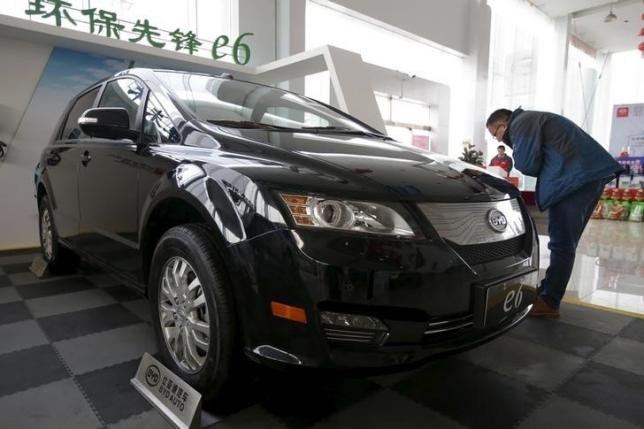Small electric vehicle (EV) makers in the United States are getting the support they need from Chinese investors after the market for EVs and the technology did not take off despite early optimism in the country, autonewschina.com reported.
According to the report, the sales of plug-in hybrids and electric cars in the U.S. dropped 5.2 percent to 116,099 vehicles as U.S. government support for the sector remains lukewarm, leaving companies struggling to survive.
The report, however, said that in China, it is different since the government is committed to the growing plug-in hybrid and EV production and sales, driving Chinese investors and companies to invest millions of dollars into U.S. companies with electrification technology.
But Chinese investors want the small U.S. EV companies to focus on the market in China.
Electric vehicles made by Wheego Electric Cars, a company based in Atlanta, which received expansion funds from Beijing-based GSR Ventures, are now being used by municipal governments in China as delivery vehicles in airports.
"China seemed like a much bigger chance for Wheego to be a big success," Mike McQuary, CEO of Wheego Electric Cars, said. "The subsidies they offer over there, and the government support and pressure for EVs to be successful, really trumps what they are doing in the United States."
Smith Electric Vehicles, a Kansas City, Mo.-based company that manufactures medium-duty commercial EVs, had received funding from Hong Kong-listed FDG Electric Vehicles. Smith Electric has sold 800 EVs to U.S. customers such as DHL and Coca-Cola.
The report said that FDG Electric Vehicles has two EV assembly plants in China as well as battery production and R&D operations, while Smith provided the manufacturing expertise.
Bryan Hansel, former CEO of Smith, said that the Chinese company "had the resources, the money, the engineers [and] the government support, but they had no practical working knowledge" of how to produce an EV.
FDG Electric Vehicles, a Chinese company, and Smith formed a joint venture and built a 2.6-million-square-foot plant in China to produce medium-duty electric vans. The joint venture called Prevok plans to launch the vans in the U.S. this year.
Hansel said that FDG had poured in $20 million (130 million yuan) directly in Smith in 2014, and invested another $15 million to form Prevok last year.
Chinese investors' long-term view on EV was encouraged by the consistent financial support from the government, as the country declared to have 5 million new energy vehicles on the road by 2020. These include battery-powered EVs, fuel-cell vehicles and plug-in hybrids.
As much as $16,000 per vehicle was offered by both the local and central governments as sales subsidies, more than half of the BYD Qin PHEV, the best-selling hybrid EV in China.
Yale Zhang, managing director of consultancy Automotive Foresight in Shanghai, said that the best-selling pure EV in China, the Kandi Panda, is worth about $23,100.
On the other hand, in the U.S., the federal subsidies amount to $7,500, with additional subsidies offered by some states.
China, however, said the subsidies it offers for EV purchases will be phased out by 2021.
Zhang said that local government purchases account mainly for the growth in EV sales, and although sales of EVs and plug-in hybrids quadrupled to 331,092 vehicles last year, EV owners have to deal with the lack of public charging stations.
Chinese automakers have to produce EVs to meet the mandate on fleet fuel economy, regardless of demand, which require 5 liters of fuel consumed per 100 kilometers (47 mpg) by 2020.
Protean Electric Inc., which has offices in Troy, Michigan, the U.K. and Shanghai, has attracted investors, such as GSR and Jiangsu New Times Holding Group, to its in-wheel electric-drive system.
But Wanxiang's acquisitions of battery-maker A123 Systems and luxury plug-in hybrid manufacturer Fisker Automotive (renamed Karma Automotive) may be considered the highest-profile Chinese investment in U.S. electrification companies, according to the report.
"China is committed to producing more and more electric vehicles," said Pin Ni, president of Wanxiang America Corp. "Wanxiang wants to participate in that growth, and we saw an opportunity to do so by acquiring A123 and Fisker."



























